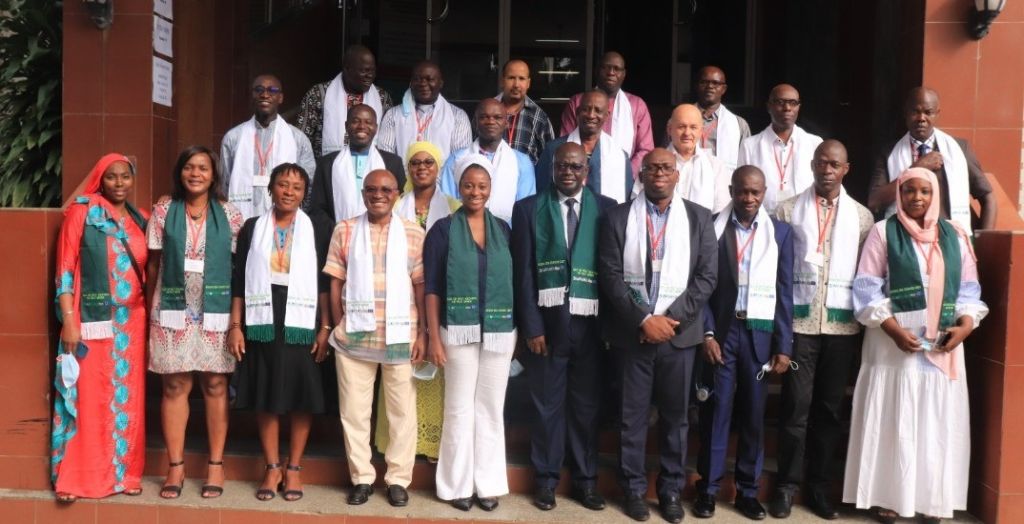Professionals engaged in the management of protected areas from 26 countries in West and Central Africa participated in the constitutive General Assembly for the establishment of the “African Network of Coaches for the Effective Management of Protected Areas (RACEGAP)”.

Participants at the launch of the “African Network of Coaches for the Effective Management of Protected Areas (RACEGAP)”
The mission of this network of coaches is to create and promote a framework for certified intervention by coaches in management effectiveness at the national, sub-regional and regional level for better management of protected areas, in partnership with regional observatories and institutions of each country. The network also aims to strengthen the capacities of professionals in the sector and also to contribute to the improvement of the management of parks and reserves on the African continent, to strengthen the protection of biodiversity and to further enhance the role of local communities in sustainable development.
This network of specialists is available to support the various public and private actors, technical and financial partners in making informed decisions for greater efficiency. This important step in the formalization of an interregional network is being done with the support of the Biodiversity and the Protected Areas Management (BIOPAMA) funded by the European Union and the Organization of ACP States (Africa Caribbean Pacific) and implemented by the International Union for Conservation of Nature (IUCN) and the Joint Research Center of the European Commission (JRC-EC).
Tanya Merceron, BIOPAMA regional coordinator for West and Central Africa, explained that the network will have the advantage of supporting the national offices in charge of the management of protected areas, but also the regional observatories committed to the same task. These are the West African Biodiversity and Protected Areas Observatory (OBAPAO) and the Central African Forest Observatory (OFAC).
In office for a term of three years renewable once, the coaches Leonidas Nzigiyimpa (President), Issa Diarrasouba (Executive Secretary) and Meite Maimouna (Tresory) have been appointed by their peers to the network bureau. The Ivory Coast was voted as the seat country of the network so the short term perspectives will consist first of legalizing the creation of RACEGAP at the level of the Ivorian authorities and then to work on an operational plan for the deployment of the planned activities.

L to R: Leonidas Nzigiyimpa (President), Meite Maimouna (Tresory), Issa Diarrasouba (Executive Secretary)
Among the discussions, the network is already considering its expansion to other African sub-regions, notably East, Southern and South Africa. After the constitutive general assembly which took place on December 6 and 7 in Abidjan, the coaches followed the training workshop provided by the Joint Research Center of the European Commission on the analysis of management data and scaling up using the IMET tool.
On the occasion of the event, representatives of BIOPAMA and the West African Observatory for Biodiversity and Protected Area (OBAPAO) and from the Central African Forest Observatory (OFAC) had a courtesy visit to the Ministry of Environment of Ivory Coast to invite him to participate in the African Protected Areas Congress planned for next March in Kigali, Rwanda.
Related News

prev





